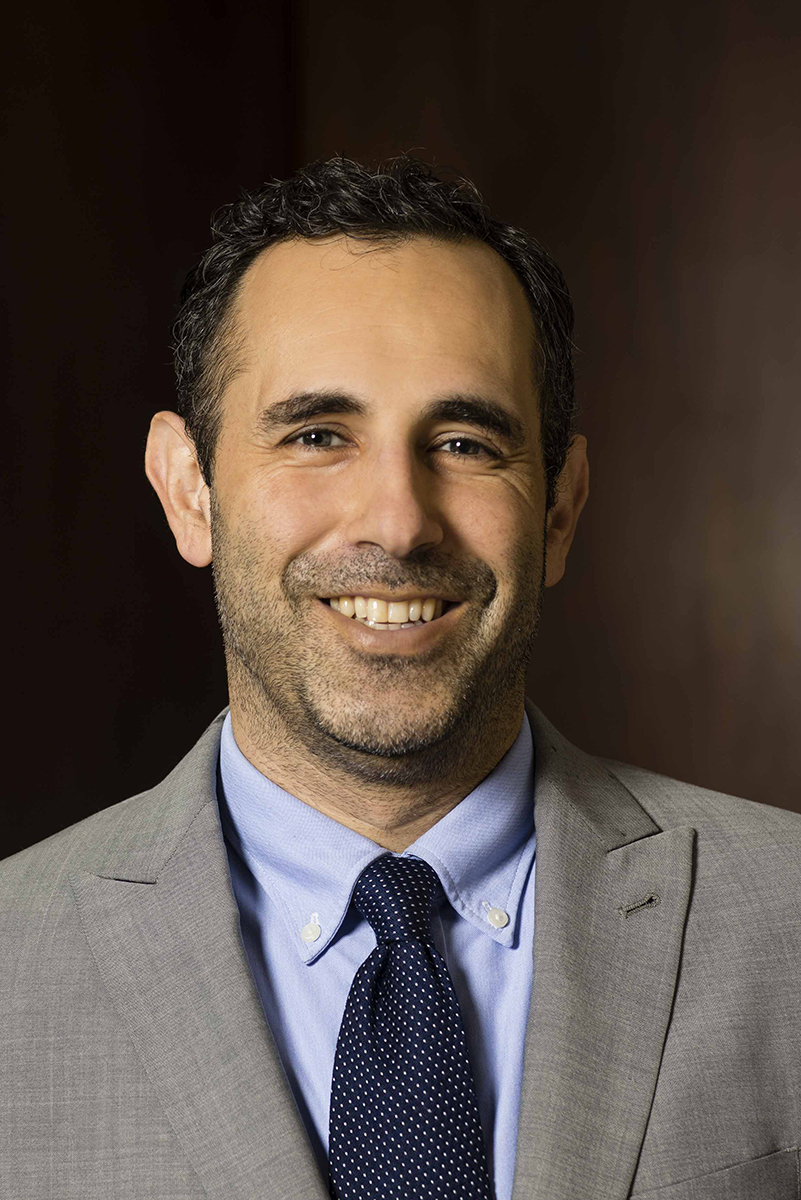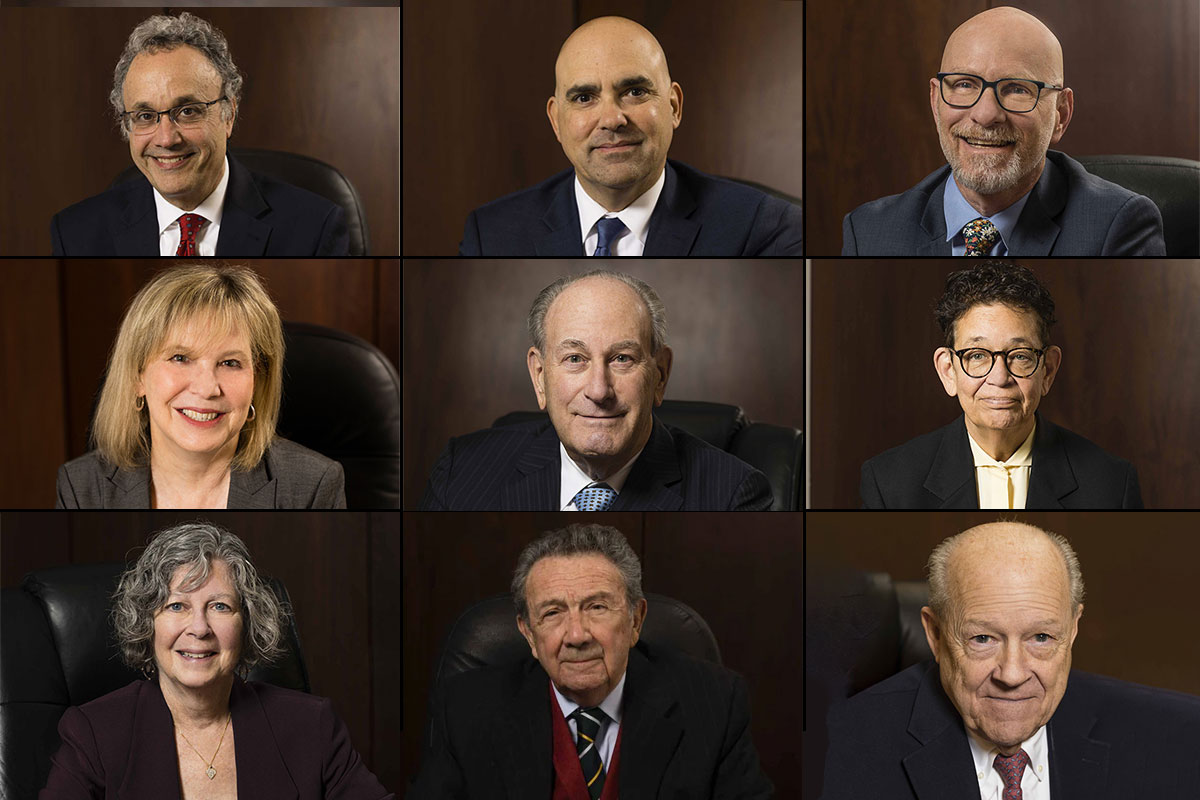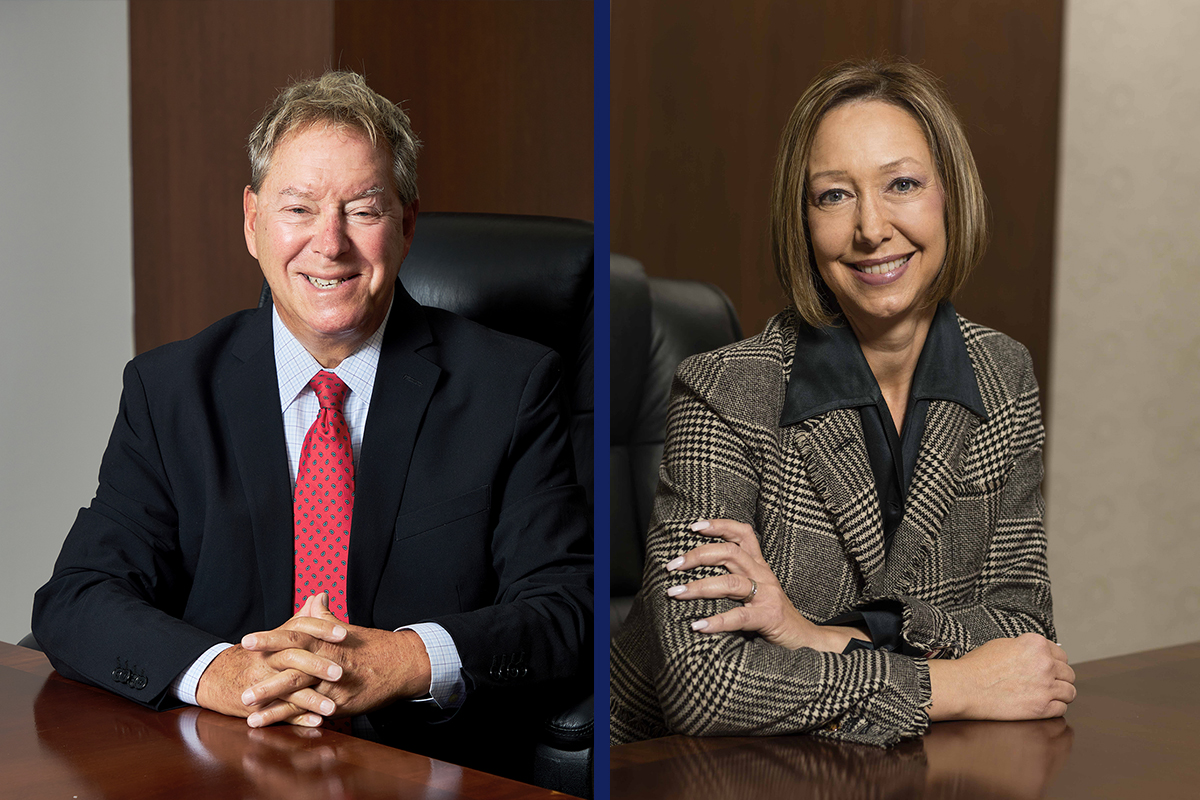Changes in the Law Practice After COVID-19 … What Will Be the New Normal?
By Peter F. Vaira, for the May 12, 2020 edition of The Legal Intelligencer newspaper
COVID-19 has brought numerous changes to the practice of law. Some were ordered by the courts, some instituted by practitioners, others simply have evolved. Some practice changes will be temporary, others may be long lasting. As with any change brought about by emergency circumstances, today’s changes may have downsides that outweigh their temporary advantages. I have asked for comments/views on the changing practices from judges, civil and criminal practitioners.
A major result of the COVID-19 virus is the very widespread use of remote hearings due to restrictions on travel and public gatherings. These remote hearings by conference call or video technology, common practice in other professions and industries, has surprised leading members of the bar. Chief Justice Nathan Hecht of the Texas Supreme Court, in a discussion on April 16, held by the American Law Institute said, “I imagine that three weeks ago no Texas court had had more than one or two video conference hearings ever. As of April 10, we have had 2,000 hearings involving more than 14,000 people.”
The remote hearings are the result of court closures, as well as executive orders limiting official and social functions. Judge Idee Fox, president judge of the Philadelphia Court of Common Pleas, ordered the court closed until May 29; however, in a separate order urged depositions held by remote communications where possible, and stated that court reporters need not be present where the deponent is located.
In a program sponsored by the Philadelphia Bar Association on April 23, featuring the chief judges of the U.S. Court of Appeals for the Third Circuit, the federal court for Eastern District of Pennsylvania and the clerk of the Eastern District of Pennsylvania, 80% of the discussion dealt with remote hearings. In weighing the pros and cons of the new techniques, Kate Barkman, the clerk of court for the Eastern District of Pennsylvania said, “The question becomes, what is the new normal?”
Chief Judge Brooks Smith of the Third Circuit said that remote oral appellate arguments are easily handled, but some problems exist. He noted that the difficulty will be with the court’s panel members who are well known for interrupting the arguments with questions, often out of turn. He said that he would advise the judges beforehand to figure out some order of questioning. He further commented that he did not envy counsel who had to argue without seeing the visual expressions of the judges.
One practice area that has been greatly affected is mediation and arbitration. Ben Picker, one of the leading mediators and arbitrators in Philadelphia, said, “The emergence of COVID-19 has turned the world of mediation and arbitration upside down. While many participants have initially resisted virtual mediation and arbitration because of their unfamiliarity with the technology, a 30-minute training session is likely to overcome these concerns. While remote mediation is less than perfect, I have found it can be highly effective. Arbitrators are working to create flexible methods of conducting remote hearings to be able to handle review of documents and other physical issues. I predict when we return to normalcy, there will be much greater use of remote mediation and arbitration, permitting participants to save time and money resulting from travel and lodging expenses.”
Michael Engle, chair of the white collar defense group of Buchanan Ingersoll & Rooney, said, “The COVID-19 pandemic will create long-lasting changes in the practice of law. Work-related travel for internal investigations and meeting with clients will be significantly curtailed, as firms realize that technology may be a cost-efficient substitute to travel. Perhaps it will become economically desirable for law firms to reduce overhead by downsizing physical office spaces.”
Another major area of concern is jury trials. Kate Barkman, clerk of court for the Eastern District of Pennsylvania, said, “Jurors may not show up.” Barkman noted that in the current climate it would be impossible for 12 jurors to sit shoulder to shoulder in a jury box. She added that bringing in 200 people in for a jury venire was equally impossible. Ann Flannery, a Philadelphia criminal lawyer said, “Many jurors may be asked to be excused because they are in an ‘at risk’ group—including those over 60 years old. Criminal defendants will be faced with tension between two important constitutional rights: the right to a speedy trial and the right to a jury selected from representative cross section of the entire community, a right recently reference by Justice Neil Gorsuch in Ramos v Louisiana, no. 18-05924’ 2020 Lexis 2407.” She added, “Jurors anxious about being in close accommodations could insidiously or subconsciously undermine the defendant’s right to an impartial jury by rapidly truncating deliberations and reaching a quick compromise verdict.”
There has been no serious discussion of changing the actual jury trial. In a jury trial it is imperative that the jurors be in the same room as the witness to watch the witness testifying. In-person testimony is a major aspect in the fact-finding aspect of the Anglo-Saxon system in the United States and Great Britain. That is one of the principal reasons why depositions are rarely permitted in the criminal law. Mike Snyder, Chancellor of the Philadelphia Bar Association, is not concerned that trials will become a thing of the past. “Trials are still the cornerstone our justice system,” he said. A special area of concern of the criminal bar is the grand jury. Grand juries generally meet in one room with 23 jurors, the government attorney, the witness, and, in Pennsylvania state grand juries, the attorney for the witness. There is no effective way to separate the grand jurors from the other parties, as all the participants need to see and hear the witness.
In the civil practice area, Robert Peirce, a well-known Pittsburgh plaintiffs attorney, said that there were negative, as well as positive, impacts on his practice. He further said, “There is the problem of not being readily able to meet with clients. Holding depositions is more difficult. On the positive side, we found that many jobs we thought could not be done at home actually can, and a trained staff can deal with many of these practical problems.”
Joseph Guerrieri, a Washington, D.C. labor lawyer who represents railroad and airline union employees across the country, said that remote conferences are a poor substitute for actual meetings with his clients who have numerous employment problems as the result of the slowdown of passenger travel.
One of the most serious issues is the restriction of the lawyer in conducting interviews, in-person depositions, and meetings with clients. Michael Engle, an experience criminal trial lawyer, said, “Many of the innovations regarding remote meetings and hearings will diminish our effectiveness as lawyers and our ability to best serve our clients.” It is this writer’s opinion, a lawyer’s personal skill in determining the actual factual circumstance he is dealing with, described by the courts as attorney opinion work product, must be preserved. Interviewing potential witnesses is a prime example. Good lawyers and investigators must see and hear a person to determine if the he is being truthful. More than one time the writer of this column has interviewed a possible witness and concluded he was “holding back.” Sometime later, it was discovered that the witness was less than candid in his interview. Remote interviews make those findings nearly impossible. The lawyer’s job in both civil and criminal cases is to learn the truth; only face to face interviews will produce that result in questionable situations. Lawyers, judges, jurors, and investigators need that confrontation, in many situations, to be effective.
Certain aspects of the criminal law practice will be affected. An issue currently being addressed is the release of prisoners who are medically vulnerable to the COVID-19 virus. The Philadelphia court system has been criticized by both the Philadelphia District Attorney’s Office and several criminal defense lawyers for the slow release of vulnerable prisoners. See “Still Behind Bars in Philadelphia,” by Samantha Malamed, The Philadelphia Inquirer, April 30.
Dean April Barton of Duquesne Law School said that she cannot count on operating as normal on campus next semester. She commented, “It will be either having a safe social distancing arrangement with professors and students or conducting classes completely online. We owe it to the students to offer the best as possible.” She further added that a major academic emphasis in the coming year will include instruction on individual leadership, a discipline not usually included in a law school curriculum.
The courts and the bar will adapt procedures to deal with changing circumstances. Some changes were long overdue, such as the remote notarization of witness statements. Others must meet the test of time and circumstances. The remarks of U.S. District Chief Judge Mark R. Hornak of the U.S. District Court of the Western District of Pennsylvania, are relevant here. Hornak said, “I hope a by-product of this crisis is a renewed sense of perspective and gratitude for all of us. For example, in discovery disputes, emotion and personality often get in the way of what really is at stake. I hope that after seeing medical and first responders daily doing their duty, we can approach our work in a way that appreciates what is really involved and what can be done to resolve disputes with civility.”
Peter Vaira is a member of Greenblatt Pierce Funt and Flores. He is a former U.S. attorney and the author of a book on Eastern District practice. He acts as special hearing master for Pennsylvania courts and clients. He can be reached at p.vaira@gpfflaw.com.






